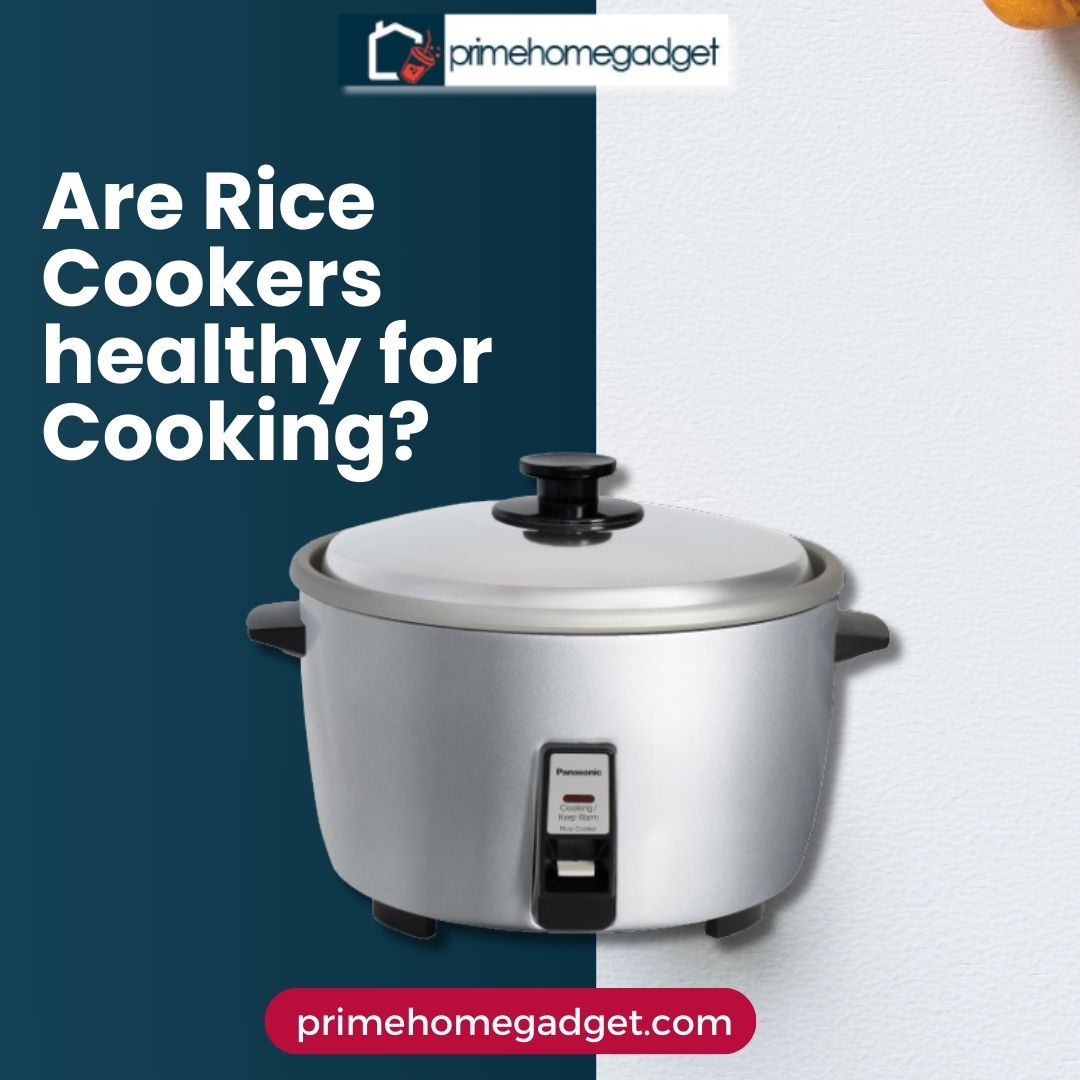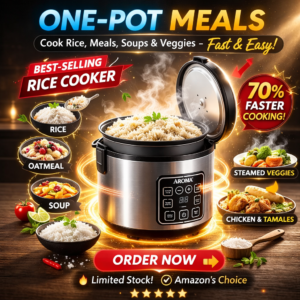In today’s fast-paced world, convenience in the kitchen is highly valued, and rice cookers have become a staple appliance for many households. But beyond their convenience, a common question arises: Are rice cookers healthy for cooking? This blog post aims to explore the health implications of using rice cookers and guide you towards making an informed decision when considering purchasing one.
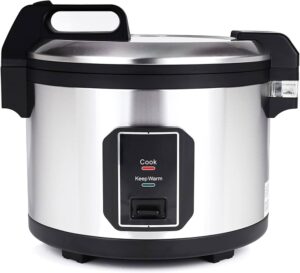
Understanding Rice Cookers: How Do They Work?
Before diving into the health aspects, it’s essential to understand how rice cookers work. A rice cooker is a countertop appliance designed to cook rice perfectly every time. The process is simple: water and rice are combined in the cooker, which then heats the mixture to a boil. The rice cooker automatically adjusts the temperature to simmer the rice until the water is fully absorbed, at which point it either turns off or keeps the rice warm.
Rice cookers are not just for cooking plain white rice. They can handle a variety of grains like brown rice, quinoa, and even oatmeal, making them versatile kitchen gadgets.
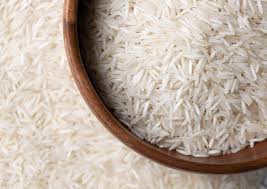
Are Rice Cookers Healthy for Cooking?
When it comes to health, the main factors to consider are the nutritional retention of the food, the materials used in the cooker, and the overall cooking process. Let’s break down these aspects to determine whether rice cookers are healthy for cooking.
1. Nutritional Retention
One of the primary concerns with any cooking method is whether it preserves the nutritional value of the food. Are rice cookers healthy for cooking? The answer is generally yes. Rice cookers are designed to cook rice evenly and efficiently, which helps to retain the nutrients in the grains.
For instance, brown rice, which is known for its high fibre content and nutrients like magnesium, manganese, and selenium, retains most of its nutritional value when cooked in a rice cooker. The slow and steady cooking process prevents the loss of vitamins and minerals, ensuring that the rice remains a healthy part of your diet.
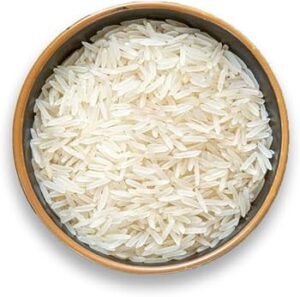
2. Materials Used in Rice Cookers
The materials used in a rice cooker can significantly impact the healthiness of your food. Many rice cookers come with non-stick coatings, which can raise concerns about chemicals like PTFE and PFOA that are sometimes used in these coatings. However, modern rice cookers have evolved, and many now feature non-toxic, ceramic, or stainless steel interiors, which are safer and healthier options.
If you’re concerned about the materials, look for rice cookers that are BPA-free and made with non-toxic components. This will ensure that your food is cooked in a healthy environment without the risk of harmful chemicals leaching into your rice.
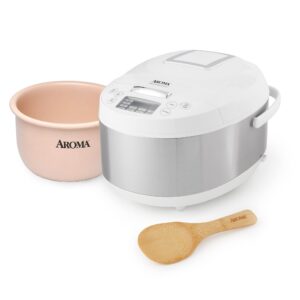
3. Low Fat Cooking
One of the advantages of using a rice cooker is that there is minimal need for added fats or oils. Rice cookers typically require only water and rice, making them an excellent choice for low-fat cooking. This is particularly beneficial for those looking to maintain or lose weight without sacrificing the enjoyment of their meals.
For a bit of added flavour, you can cook your rice in broth instead of water, or add herbs and spices directly to the cooker. These additions will enhance the taste without significantly increasing the calorie content.
4. Consistent Results and Portion Control
Another health benefit of using a rice cooker is the consistency it offers. Unlike stovetop cooking, where rice can easily become overcooked or burned, rice cookers provide consistent results every time. This ensures that your rice is cooked perfectly, with the right texture and flavour, which can encourage healthier eating habits.
Moreover, rice cookers often come with measuring cups and portion guidelines, helping you control your portion sizes. This is particularly helpful for those managing their carbohydrate intake or following a specific diet plan.
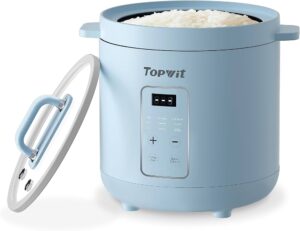
Additional Health Benefits of Rice Cookers
Aside from the basic health aspects, rice cookers offer several additional benefits that contribute to a healthier lifestyle:
1. Versatility in Cooking
Rice cookers aren’t just limited to cooking rice. Many models come with settings for steaming vegetables, cooking soups, or even making porridge. This versatility allows you to prepare a variety of healthy meals using one appliance, which can encourage more home-cooked meals and reduce reliance on processed foods.
2. Time and Energy Efficiency
A rice cooker can save you time and energy, both of which are crucial for maintaining a healthy lifestyle. With a rice cooker, you can set it and forget it, freeing up time to focus on other aspects of your meal or day. This convenience can make it easier to stick to healthy eating habits, as it reduces the temptation to opt for quicker, less healthy options.
3. Promotes Whole Grain Consumption
Using a rice cooker can also promote the consumption of whole grains. Many people find it challenging to cook grains like brown rice or quinoa to the right texture, leading them to choose less nutritious options. However, with a rice cooker, these grains are easy to prepare, making it more likely that you’ll include them in your diet.
Conclusion: Are Rice Cookers Worth the Investment?
Are rice cookers healthy for cooking? Absolutely. Rice cookers not only preserve the nutritional value of rice and other grains but also offer a convenient and versatile way to prepare healthy meals. With the right model, you can enjoy the benefits of low-fat cooking, consistent results, and the ability to cook a variety of nutritious foods.
When purchasing a rice cooker, consider factors like the materials used, the capacity, and any additional features that may enhance your cooking experience. By investing in a good quality rice cooker, you’ll be adding a valuable tool to your kitchen that supports a healthier lifestyle.

